Frequent persons on Haiti-and-domrep's street signs
countries
67 names / 285 streets
Juan Pablo Duarte
 52
Juan Pablo Duarte y Díez was a Dominican military leader, writer, activist, and nationalist politician who was the foremost of the founding fathers of the Dominican Republic and bears the title of...
52
Juan Pablo Duarte y Díez was a Dominican military leader, writer, activist, and nationalist politician who was the foremost of the founding fathers of the Dominican Republic and bears the title of...
Matías Ramón Mella
 21
Matías Ramón Mella Castillo, who was most known by his middle name (Ramón), was a Dominican revolutionary, politician, and military general. Mella is regarded as a national hero in the Dominican...
21
Matías Ramón Mella Castillo, who was most known by his middle name (Ramón), was a Dominican revolutionary, politician, and military general. Mella is regarded as a national hero in the Dominican...
María Trinidad Sánchez
 19
María Trinidad Sánchez, Mother Founder was a Dominican freedom fighter and a heroine of the Dominican War of Independence. She participated on the rebel side as a courier. Together with Concepción...
19
María Trinidad Sánchez, Mother Founder was a Dominican freedom fighter and a heroine of the Dominican War of Independence. She participated on the rebel side as a courier. Together with Concepción...
Mirabal sisters
 12
The Mirabal sisters were four sisters from the Dominican Republic, three of whom opposed the dictatorship of Rafael Trujillo and were involved in clandestine activities against his regime. The three...
12
The Mirabal sisters were four sisters from the Dominican Republic, three of whom opposed the dictatorship of Rafael Trujillo and were involved in clandestine activities against his regime. The three...
Antonio Guzmán Fernández
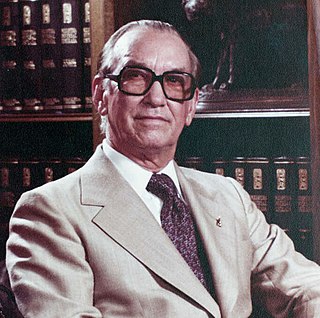 10
Silvestre Antonio Guzmán Fernández, best known as Antonio Guzmán, was a Dominican businessman and a politician. He was President of the Dominican Republic, from 1978 to 1982.
10
Silvestre Antonio Guzmán Fernández, best known as Antonio Guzmán, was a Dominican businessman and a politician. He was President of the Dominican Republic, from 1978 to 1982.
Toussaint Louverture
 7
François-Dominique Toussaint Louverture also known as Toussaint L'Ouverture or Toussaint Bréda, was a Haitian general and the most prominent leader of the Haitian Revolution. During his life,...
7
François-Dominique Toussaint Louverture also known as Toussaint L'Ouverture or Toussaint Bréda, was a Haitian general and the most prominent leader of the Haitian Revolution. During his life,...
Sténio Vincent
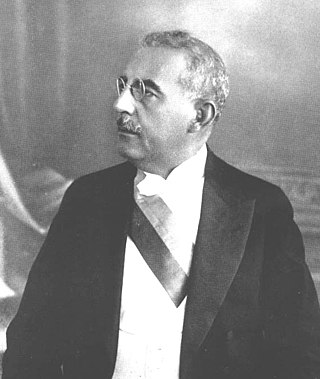 6
Sténio Joseph Vincent was President of Haiti from November 18, 1930 to May 15, 1941.
6
Sténio Joseph Vincent was President of Haiti from November 18, 1930 to May 15, 1941.
Manolo Tavárez Justo
Máximo Gómez
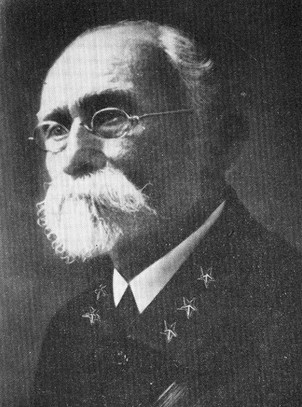 6
Máximo Gómez y Báez was a Dominican Generalissimo in Cuba's War of Independence (1895–1898). He was known for his controversial scorched-earth policy, which entailed dynamiting passenger trains and...
6
Máximo Gómez y Báez was a Dominican Generalissimo in Cuba's War of Independence (1895–1898). He was known for his controversial scorched-earth policy, which entailed dynamiting passenger trains and...
Christopher Columbus
 6
Christopher Columbus was an Italian explorer and navigator from the Republic of Genoa who completed four Spanish-based voyages across the Atlantic Ocean sponsored by the Catholic Monarchs, opening...
6
Christopher Columbus was an Italian explorer and navigator from the Republic of Genoa who completed four Spanish-based voyages across the Atlantic Ocean sponsored by the Catholic Monarchs, opening...
Gregorio Luperón
 5
Gregorio Luperón was a Dominican revolutionary, military general, businessman, liberal politician, freemason, and Statesman who was one of the leaders in the Dominican Restoration War. Luperón was an...
5
Gregorio Luperón was a Dominican revolutionary, military general, businessman, liberal politician, freemason, and Statesman who was one of the leaders in the Dominican Restoration War. Luperón was an...
Abraham Lincoln
 4
Abraham Lincoln was an American lawyer, politician, and statesman, who served as the 16th president of the United States, from 1861 until his assassination in 1865. Lincoln led the United States...
4
Abraham Lincoln was an American lawyer, politician, and statesman, who served as the 16th president of the United States, from 1861 until his assassination in 1865. Lincoln led the United States...
Charles de Gaulle
 4
Charles André Joseph Marie de Gaulle was a French army officer and statesman who led the Free French Forces against Nazi Germany in World War II and chaired the Provisional Government of the French...
4
Charles André Joseph Marie de Gaulle was a French army officer and statesman who led the Free French Forces against Nazi Germany in World War II and chaired the Provisional Government of the French...
José Núñez de Cáceres
 4
José Núñez de Cáceres y Albor was a Dominican revolutionary and writer. He is known for being the leader of the first Dominican independence movement against Spain in 1821. His revolutionary...
4
José Núñez de Cáceres y Albor was a Dominican revolutionary and writer. He is known for being the leader of the first Dominican independence movement against Spain in 1821. His revolutionary...
Antonio Imbert Barrera
 4
Major General Antonio Cosme Imbert Barrera was a Dominican military general of the Dominican Army and was President of the Dominican Republic from May to August 1965.
4
Major General Antonio Cosme Imbert Barrera was a Dominican military general of the Dominican Army and was President of the Dominican Republic from May to August 1965.
Juan Bosch (politician)
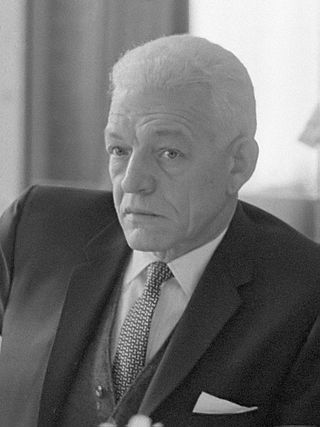 4
Juan Emilio Bosch y Gaviño was a Dominican politician, historian, writer, essayist, educator, and the first democratically elected president of the Dominican Republic for a brief time in 1963....
4
Juan Emilio Bosch y Gaviño was a Dominican politician, historian, writer, essayist, educator, and the first democratically elected president of the Dominican Republic for a brief time in 1963....
Saint Anne
 4
According to apocrypha, as well as Christian and Islamic tradition, Saint Anne was the mother of Mary, the wife of Joachim and the maternal grandmother of Jesus. Mary's mother is not named in the...
4
According to apocrypha, as well as Christian and Islamic tradition, Saint Anne was the mother of Mary, the wife of Joachim and the maternal grandmother of Jesus. Mary's mother is not named in the...
Simón Bolívar
 4
Simón José Antonio de la Santísima Trinidad Bolívar Palacios Ponte y Blanco was a Venezuelan military and political leader who led what are currently the countries of Colombia, Venezuela, Ecuador,...
4
Simón José Antonio de la Santísima Trinidad Bolívar Palacios Ponte y Blanco was a Venezuelan military and political leader who led what are currently the countries of Colombia, Venezuela, Ecuador,...
Fabre Geffrard
 3
Guillaume Fabre Nicolas Geffrard was a mulatto general in the Haitian army and President of Haiti from 1859 until his deposition in 1867. On 18 April 1852, Faustin Soulouque made him Duke of Tabara....
3
Guillaume Fabre Nicolas Geffrard was a mulatto general in the Haitian army and President of Haiti from 1859 until his deposition in 1867. On 18 April 1852, Faustin Soulouque made him Duke of Tabara....
Charlemagne Péralte
 3
Charlemagne Masséna Péralte was a Haitian nationalist leader who opposed the United States occupation of Haiti in 1915. Leading guerrilla fighters called the Cacos, he posed such a challenge to the...
3
Charlemagne Masséna Péralte was a Haitian nationalist leader who opposed the United States occupation of Haiti in 1915. Leading guerrilla fighters called the Cacos, he posed such a challenge to the...
Juan Sánchez Ramírez
 3
Juan Sánchez Ramírez was a Dominican general who was the primary leader of the War of Reconquista. He is known for leading the troops in the Battle of Palo Hincado. The decisive Dominican victory...
3
Juan Sánchez Ramírez was a Dominican general who was the primary leader of the War of Reconquista. He is known for leading the troops in the Battle of Palo Hincado. The decisive Dominican victory...
Rebellion of the Pilots
 3
The Rebellion of the Pilots was a military uprising carried out by six members of the Dominican Military Aviation on November 19, 1961, that put a definitive end to the rule of 31 years of the...
3
The Rebellion of the Pilots was a military uprising carried out by six members of the Dominican Military Aviation on November 19, 1961, that put a definitive end to the rule of 31 years of the...
Horacio Vásquez
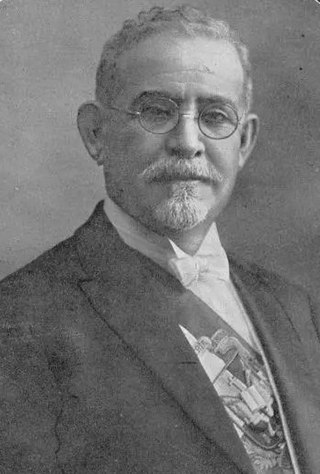 3
Felipe Horacio Vásquez Lajara was a Dominican Republic military general and political figure. He served as the president of the Provisional Government Junta of the Dominican Republic in 1899, and...
3
Felipe Horacio Vásquez Lajara was a Dominican Republic military general and political figure. He served as the president of the Provisional Government Junta of the Dominican Republic in 1899, and...
Concepción Bona
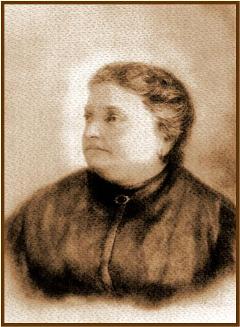 3
Maria de la Concepción Bona Hernández, Mother Founder was a nursery school teacher and a campaigner for the independence of the Dominican Republic. Together with María Trinidad Sánchez, Isabel Sosa...
3
Maria de la Concepción Bona Hernández, Mother Founder was a nursery school teacher and a campaigner for the independence of the Dominican Republic. Together with María Trinidad Sánchez, Isabel Sosa...
Orlando Martínez
 3
Orlando Martínez was a Cuban bantamweight boxer, who won the gold medal at the 1972 Summer Olympics. Three years later he captured the gold at the 1975 Pan American Games. Orlando was awarded a hotly...
3
Orlando Martínez was a Cuban bantamweight boxer, who won the gold medal at the 1972 Summer Olympics. Three years later he captured the gold at the 1975 Pan American Games. Orlando was awarded a hotly...
Rafael Filiberto Bonnelly
 3
Rafael Filiberto Bonnelly Fondeur was a lawyer, scholar, diplomat, and, from 1962 until 1963, the
President of the Dominican Republic. Before he became president, he was vice president of the country...
3
Rafael Filiberto Bonnelly Fondeur was a lawyer, scholar, diplomat, and, from 1962 until 1963, the
President of the Dominican Republic. Before he became president, he was vice president of the country...
Pedro Mir
 3
Pedro Julio Mir Valentín was Dominican poet and writer, named Poet Laureate of the Dominican Republic by Congress in 1984, and a member of the generation of "Independent poets of the 1940s" in...
3
Pedro Julio Mir Valentín was Dominican poet and writer, named Poet Laureate of the Dominican Republic by Congress in 1984, and a member of the generation of "Independent poets of the 1940s" in...
Winston Churchill
 2
Sir Winston Leonard Spencer Churchill was a British statesman, soldier, and writer who twice served as Prime Minister of the United Kingdom, from 1940 to 1945 during the Second World War, and again...
2
Sir Winston Leonard Spencer Churchill was a British statesman, soldier, and writer who twice served as Prime Minister of the United Kingdom, from 1940 to 1945 during the Second World War, and again...
Oswald Durand
 2
Oswald Durand was a Haitian poet and politician, said to be "to Haiti what Shakespeare is to England, and Dante to Italy." He was also a Haitian writer and poet of French and Creole expression,...
2
Oswald Durand was a Haitian poet and politician, said to be "to Haiti what Shakespeare is to England, and Dante to Italy." He was also a Haitian writer and poet of French and Creole expression,...
Paul Magloire
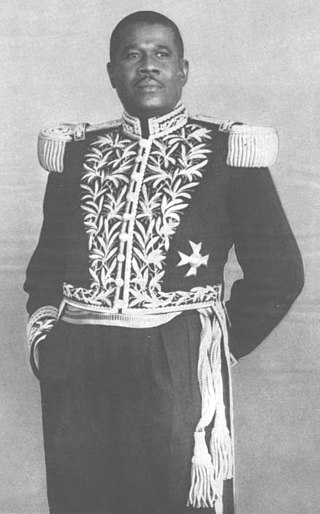 2
Paul Eugène Magloire, nicknamed Kanson Fè, was the Haitian president from 1950 to 1956.
2
Paul Eugène Magloire, nicknamed Kanson Fè, was the Haitian president from 1950 to 1956.
Bartholomew Columbus
 2
Bartholomew Columbus was an Italian explorer from the Republic of Genoa and the younger brother of Christopher Columbus.
2
Bartholomew Columbus was an Italian explorer from the Republic of Genoa and the younger brother of Christopher Columbus.
Vincent de Paul
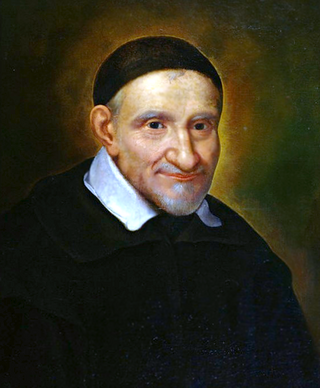 2
Vincent de Paul, CM, commonly known as Saint Vincent de Paul, was an Occitan French Catholic priest who dedicated himself to serving the poor.
2
Vincent de Paul, CM, commonly known as Saint Vincent de Paul, was an Occitan French Catholic priest who dedicated himself to serving the poor.
Francisco Gregorio Billini
 2
Francisco Gregorio Billini Aristi was a Dominican writer, pedagogue, and politician. Supported by the former president Ulises Heureaux, he won the national elections in 1884, and served as the 23rd...
2
Francisco Gregorio Billini Aristi was a Dominican writer, pedagogue, and politician. Supported by the former president Ulises Heureaux, he won the national elections in 1884, and served as the 23rd...
José de San Martín
 2
José Francisco de San Martín y Matorras, nicknamed "the Liberator of Argentina, Chile and Peru", was an Argentine general and the primary leader of the southern and central parts of South America's...
2
José Francisco de San Martín y Matorras, nicknamed "the Liberator of Argentina, Chile and Peru", was an Argentine general and the primary leader of the southern and central parts of South America's...
Agustín Lara
 2
Ángel Agustín María Carlos Fausto Mariano Alfonso del Sagrado Corazón de Jesús Lara y Aguirre del Pino, known as Agustín Lara, was a Mexican composer and performer of songs and boleros. He is...
2
Ángel Agustín María Carlos Fausto Mariano Alfonso del Sagrado Corazón de Jesús Lara y Aguirre del Pino, known as Agustín Lara, was a Mexican composer and performer of songs and boleros. He is...
José Martí
 2
José Julián Martí Pérez was a Cuban nationalist, poet, philosopher, essayist, journalist, translator, professor, and publisher, who is considered a Cuban national hero because of his role in the...
2
José Julián Martí Pérez was a Cuban nationalist, poet, philosopher, essayist, journalist, translator, professor, and publisher, who is considered a Cuban national hero because of his role in the...
Pedro Álvares Cabral
 2
Pedro Álvares Cabral was a Portuguese nobleman, military commander, navigator and explorer regarded as the European discoverer of Brazil. He was the first recorded human in history to ever be on four...
2
Pedro Álvares Cabral was a Portuguese nobleman, military commander, navigator and explorer regarded as the European discoverer of Brazil. He was the first recorded human in history to ever be on four...
Emilio Prud'Homme
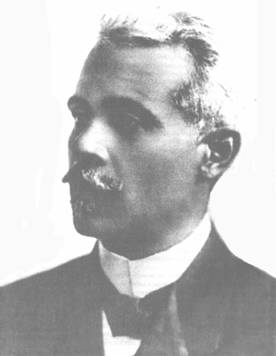 2
Emilio Prud'Homme y Maduro was a Dominican lawyer, writer, and educator. Prud'Homme is known for having authored the lyrics of the Dominican national anthem. He is also attributed with helping...
2
Emilio Prud'Homme y Maduro was a Dominican lawyer, writer, and educator. Prud'Homme is known for having authored the lyrics of the Dominican national anthem. He is also attributed with helping...
Fernando Arturo de Meriño
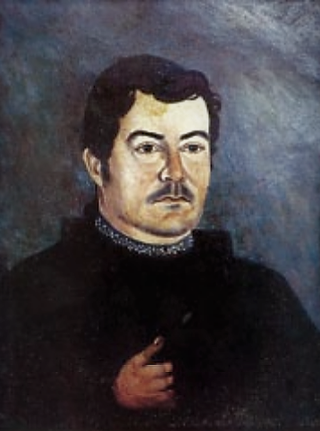 2
Fernando Arturo de Meriño y Ramírez was a Dominican priest and politician. He served as President of the Dominican Republic from September 1, 1880, until September 1, 1882. He served as the President...
2
Fernando Arturo de Meriño y Ramírez was a Dominican priest and politician. He served as President of the Dominican Republic from September 1, 1880, until September 1, 1882. He served as the President...
Francisco Villaespesa
Felipe Alfau
 2
Felipe Alfau was a Spanish-born American novelist and poet. Most of his works were written in English.
2
Felipe Alfau was a Spanish-born American novelist and poet. Most of his works were written in English.
André Rigaud
 2
Benoit Joseph André Rigaud was the leading mulatto military leader during the Haitian Revolution. Among his protégés were Alexandre Pétion and Jean-Pierre Boyer, both future presidents of Haïti.
2
Benoit Joseph André Rigaud was the leading mulatto military leader during the Haitian Revolution. Among his protégés were Alexandre Pétion and Jean-Pierre Boyer, both future presidents of Haïti.
Gaspar Polanco
 2
Gaspar Polanco Borbón was a Dominican Republic military general and politician. He has been one of the most notable military figures in the history of the Dominican Republic and served as the...
2
Gaspar Polanco Borbón was a Dominican Republic military general and politician. He has been one of the most notable military figures in the history of the Dominican Republic and served as the...
Jean-Baptiste de La Salle
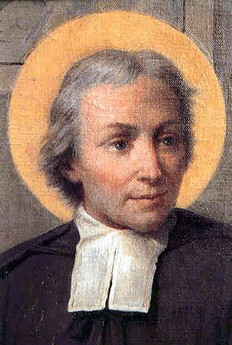 2
Jean-Baptiste de La Salle was a French priest, educational reformer, and founder of the Institute of the Brothers of the Christian Schools. He is a saint of the Catholic Church and the patron saint...
2
Jean-Baptiste de La Salle was a French priest, educational reformer, and founder of the Institute of the Brothers of the Christian Schools. He is a saint of the Catholic Church and the patron saint...
Benito Juárez
 2
Benito Pablo Juárez García was a Mexican Liberal lawyer and statesman who served as the 26th president of Mexico from 1858 until his death in office in 1872. Of Zapotec ancestry, he was the first and...
2
Benito Pablo Juárez García was a Mexican Liberal lawyer and statesman who served as the 26th president of Mexico from 1858 until his death in office in 1872. Of Zapotec ancestry, he was the first and...
Euclides Morillo
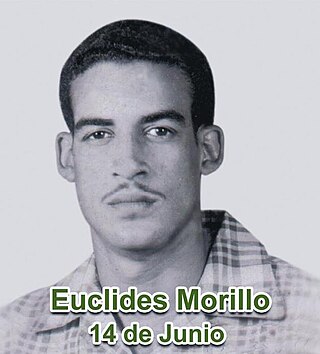 2
Ramón Euclides Morillo Martínez fue un revolucionario y guerrillero dominicano.
2
Ramón Euclides Morillo Martínez fue un revolucionario y guerrillero dominicano.
Ramón Cáceres
 2
Ramón Arturo Cáceres Vasquez, nicknamed Mon Cáceres, was a Dominican Republic politician and minister of the Armed Forces. He was the 31st president of the Dominican Republic (1906–1911). He served...
2
Ramón Arturo Cáceres Vasquez, nicknamed Mon Cáceres, was a Dominican Republic politician and minister of the Armed Forces. He was the 31st president of the Dominican Republic (1906–1911). He served...
Luis Alberti
 2
Luis Alberti was a Dominican Merengue musician, arranger, conductor, and author of significant popular songs such as Compadre Pedro Juan and many others performed and recorded by noted interpreters...
2
Luis Alberti was a Dominican Merengue musician, arranger, conductor, and author of significant popular songs such as Compadre Pedro Juan and many others performed and recorded by noted interpreters...
José Francisco Peña Gómez
 2
José Francisco Peña Gómez was a politician from the Dominican Republic. He was the leader of the Dominican Revolutionary Party (PRD), a three-time candidate for president of the Dominican Republic...
2
José Francisco Peña Gómez was a politician from the Dominican Republic. He was the leader of the Dominican Revolutionary Party (PRD), a three-time candidate for president of the Dominican Republic...
Charles Sumner
 2
Charles Sumner was an American lawyer, politician, and statesman who represented Massachusetts in the United States Senate from 1851 until his death in 1874. Before and during the American Civil War,...
2
Charles Sumner was an American lawyer, politician, and statesman who represented Massachusetts in the United States Senate from 1851 until his death in 1874. Before and during the American Civil War,...
Rafael Vidal
 2
Rafael Antonio Vidal Castro was a Venezuelan competition swimmer, Olympic medalist and sports commentator.
2
Rafael Antonio Vidal Castro was a Venezuelan competition swimmer, Olympic medalist and sports commentator.
Luis Amiama Tió
 2
Luis Amiama Tió fue uno de los partícipes en la muerte de Rafael Trujillo, dictador de la República Dominicana.
2
Luis Amiama Tió fue uno de los partícipes en la muerte de Rafael Trujillo, dictador de la República Dominicana.
Pedro Santana
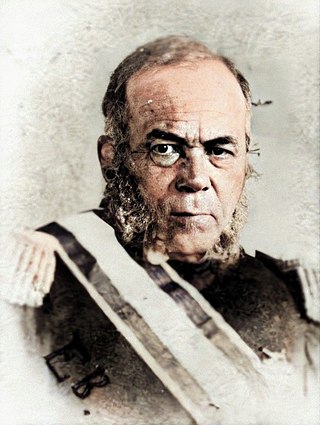 2
Pedro Santana y Familias, 1st Marquess of Las Carreras was a Dominican military commander and royalist politician who served as the president of the junta that had established the First Dominican...
2
Pedro Santana y Familias, 1st Marquess of Las Carreras was a Dominican military commander and royalist politician who served as the president of the junta that had established the First Dominican...
Manuela Díez Jiménez
 2
Manuela Díez Jiménez (1786–1858) was a key female figure in the forming of the Dominican independence. She was the mother of Juan Pablo Duarte, the founder of the Dominican Republic, or the so-called...
2
Manuela Díez Jiménez (1786–1858) was a key female figure in the forming of the Dominican independence. She was the mother of Juan Pablo Duarte, the founder of the Dominican Republic, or the so-called...
Louis of Toulouse
 2
Saint Louis of Toulouse, also known as Louis of Anjou, was a Neapolitan prince of the Capetian House of Anjou and a Catholic bishop.
2
Saint Louis of Toulouse, also known as Louis of Anjou, was a Neapolitan prince of the Capetian House of Anjou and a Catholic bishop.
Juan Isidro Pérez
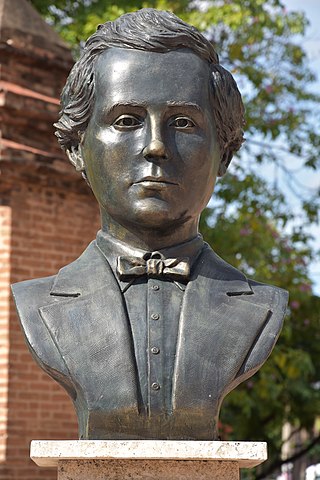 2
Juan Isidro Pérez de la Paz fue un activista dominicano, miembro y cofundador de la sociedad secreta La Trinitaria. Prócer de la independencia de la República Dominicana, y Luis Emilio fue el amigo...
2
Juan Isidro Pérez de la Paz fue un activista dominicano, miembro y cofundador de la sociedad secreta La Trinitaria. Prócer de la independencia de la República Dominicana, y Luis Emilio fue el amigo...
Pedro Alejandro Pina
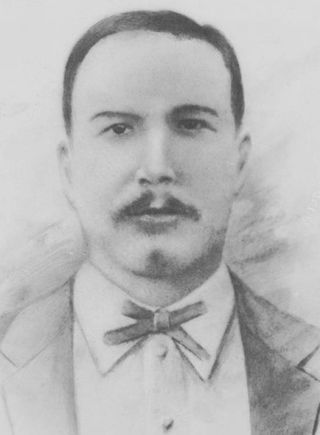 2
Pedro Alejandrino Pina García fue un político y militar dominicano considerado como uno de los próceres de la independencia dominicana. Fue el cofundador de la Sociedad Secreta La Trinitaria y primo...
2
Pedro Alejandrino Pina García fue un político y militar dominicano considerado como uno de los próceres de la independencia dominicana. Fue el cofundador de la Sociedad Secreta La Trinitaria y primo...
Federico García Lorca
 2
Federico del Sagrado Corazón de Jesús García Lorca, known as Federico García Lorca, was a Spanish poet, playwright, and theatre director. García Lorca achieved international recognition as an...
2
Federico del Sagrado Corazón de Jesús García Lorca, known as Federico García Lorca, was a Spanish poet, playwright, and theatre director. García Lorca achieved international recognition as an...
Anthony of Padua
 2
Anthony of Padua, OFM or Anthony of Lisbon was a Portuguese Catholic priest and friar of the Franciscan Order.
2
Anthony of Padua, OFM or Anthony of Lisbon was a Portuguese Catholic priest and friar of the Franciscan Order.
Francis of Assisi
 2
Giovanni di Pietro di Bernardone, known as Francis of Assisi, was an Italian mystic, poet and Catholic friar who founded the religious order of the Franciscans. He was inspired to lead a Christian...
2
Giovanni di Pietro di Bernardone, known as Francis of Assisi, was an Italian mystic, poet and Catholic friar who founded the religious order of the Franciscans. He was inspired to lead a Christian...
Rosa Duarte
 2
Rosa Duarte was a Dominican revolutionary dedicated to the patriotic cause towards Dominican independence. Her contributions to the Dominican Republic are considered by the historian Emilio Rodríguez...
2
Rosa Duarte was a Dominican revolutionary dedicated to the patriotic cause towards Dominican independence. Her contributions to the Dominican Republic are considered by the historian Emilio Rodríguez...
Manuel Simó Marín
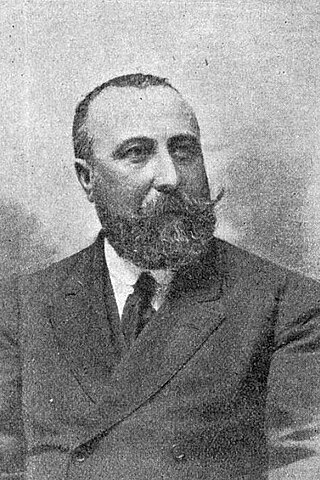 2
Manuel Simó Marín (1868-1936) was a Spanish right-wing politician. Until 1919 for some 30 years he remained engaged in Carlism; in 1909-1917 he was heading the regional Valencian branch of the...
2
Manuel Simó Marín (1868-1936) was a Spanish right-wing politician. Until 1919 for some 30 years he remained engaged in Carlism; in 1909-1917 he was heading the regional Valencian branch of the...
Mercedes Laura Aguiar
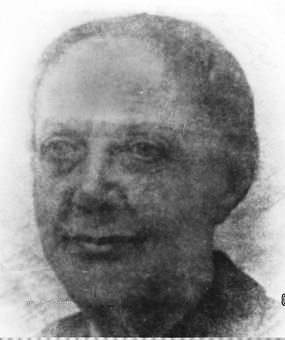 2
Mercedes Laura Aguiar was an educator and feminist from the Dominican Republic. As a journalist and poet, she wrote works to promote equality of men and women and Dominican sovereignty, writing in...
2
Mercedes Laura Aguiar was an educator and feminist from the Dominican Republic. As a journalist and poet, she wrote works to promote equality of men and women and Dominican sovereignty, writing in...
Jacobo Majluta
Jesús Galíndez
 2
Jesús (de) Galíndez Suárez was a Spanish politician, writer and Columbia University international law professor of Basque nationalist ideology who disappeared in New York City. He was allegedly...
2
Jesús (de) Galíndez Suárez was a Spanish politician, writer and Columbia University international law professor of Basque nationalist ideology who disappeared in New York City. He was allegedly...
Julio Genaro Campillo Pérez
 2
Julio Genaro Campillo Pérez, fue un historiador, abogado, periodista, educador y genealogista dominicano. En el sector Invivienda, hay una calle con su nombre. Conocido por ser el creador de la...
2
Julio Genaro Campillo Pérez, fue un historiador, abogado, periodista, educador y genealogista dominicano. En el sector Invivienda, hay una calle con su nombre. Conocido por ser el creador de la...
Manuel del Cabral
 2
Manuel del Cabral was a Dominican poet, writer, and diplomat. The son of Mario Fermín Cabral y Báez, an influential senator during the "Era of Trujillo", he served at the Embassy of the Dominican...
2
Manuel del Cabral was a Dominican poet, writer, and diplomat. The son of Mario Fermín Cabral y Báez, an influential senator during the "Era of Trujillo", he served at the Embassy of the Dominican...